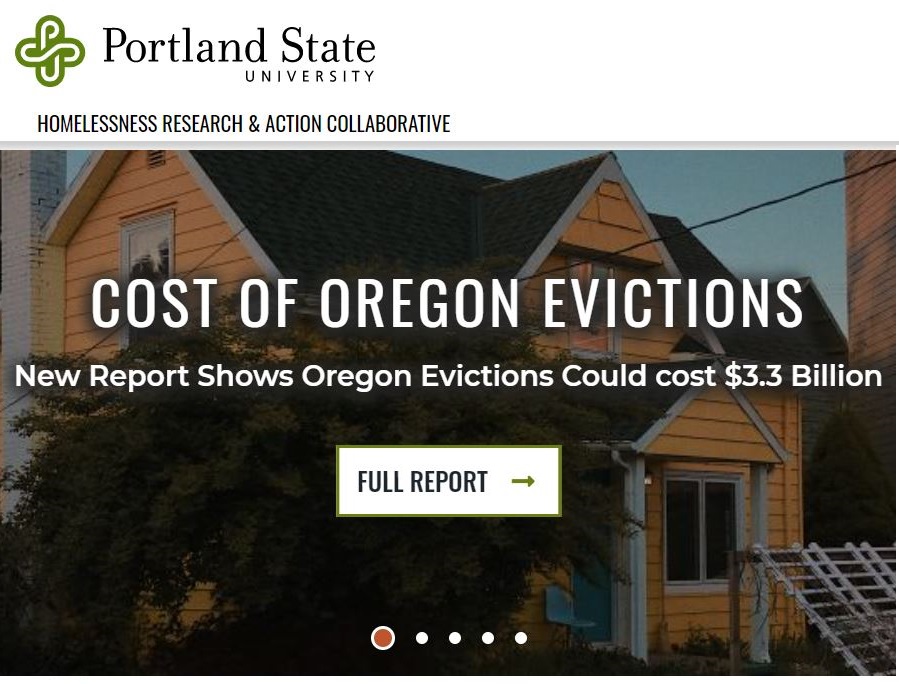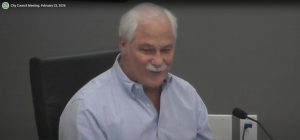HRC to consider emergency declaration
5 min read
With housing evictions resuming July 1, Eugene's Human Rights Commission will consider asking for a declaration of emergency.
Heather Sielicki: We’re terrified about the eviction moratorium ending. What was so horrifying about the wildfires were all of these newly-unhoused people coming and expecting that there would be a social safety net and there’s not. There’s just not. People don’t understand that. They come and they’re so horrified to find that we just don’t have enough services and then they become unhoused for a minimum of 12 to 13 months.
John Q: [00:00:26] Heather Sielicki of the Eugene Human Rights Commission visited a neighborhood human rights group last week.
Heather Sielicki: [00:00:34] We had a presentation from the Springfield Eugene Tenants Association. And it was alarming because there are so many people who may potentially be impacted by the end of the eviction moratorium. People will have to pay July’s rent and if they can’t, they can be evicted. So, the leadership team has drafted a proposed resolution. I’d like to read it to you and it’s one of those documents, the “whereas, therefore” language they seem to speak.
Thank you for supporting
local citizen journalism
“Whereas Oregon has the fourth largest population of people who are unhoused.
“Whereas an estimated 1600 people in Eugene are homeless and more than 4,000 people in Lane County are unsheltered.”
(I think this number is off. The homeless by name list was down today and the person who was researching it probably just got it from something old, but we’ll fix that on Tuesday with the right numbers.)
“Whereas an estimated 20% of Eugene residents live below the federal poverty line;
“Whereas an estimated 45% of Eugene residents have been identified as earning more than the federal poverty level, but less than the basic cost of living, which means they’re living dangerously close to financial crisis;
“Whereas the rent eviction moratorium instituted in 2020 because of the COVID-19 pandemic is set to expire on July 1st and accumulated back rent must be paid by February 22nd;
“Whereas Oregon renters owe as much as $378 million in back rent, yet the state has received only $222 million in rental assistance from President Biden’s American Rescue Plan;
“Whereas experts and advocates anticipate a flood of evictions when the rent eviction moratorium ends;
“Whereas Portland State University’s Homeless Research and Action Collaborative estimates that the short downstream costs of evictions could be as much as 3.3 billion state wide;
“Whereas there are fewer shelter beds in Eugene than existed before the pandemic.
“Whereas fire season is approaching, which could increase the number of people who lose their homes;
“Whereas there is no community-wide hazardous weather plan in place for Eugene’s unhoused;
“Therefore the Eugene City Council commits itself to the following:
“One. Creating a housing emergency response plan, which includes the activation of the community emergency response team to assist with providing shelter to those who need it
“Two. Declaring a state of emergency when the number of unhoused people reaches a critical level.
“Three. Developing and implementing a hazardous weather plan, adequate in scope and scale to the impending wave of newly evicted residents
“Four. Coordinating these efforts with Lane County and other relevant jurisdictions and
“Last. Developing a comprehensive interdepartmental approach to dealing with the crisis, including streamlining the public procurement process to get funds quickly to where they’re needed.”
John Q: [00:03:40] Rob Fisette, who chairs the Southeast Neighbors Human Rights Committee.
Rob Fisette: [00:03:44] Just to clarify, Heather: Starting July 1st, the eviction moratorium is over. So people have to start paying the rent again July 1st. And if they don’t pay their rent for July, say, they can be evicted. But all the back rent, they have until next February.
Heather Sielicki: [00:04:02] Correct. And there are providers in the county and then the city, and there is funding. But everybody’s talking about how to spend it in silos. They don’t really work together. And what they say is there’s public finance laws where we have to do this, we have to do everything as RFPs (Request for Proposals), and we can’t bring people together because it’s anti-competitive. And if that’s the case, they do have the ability to declare a state of emergency and fine tune the procurement laws and other barriers, for a duration of time.
John Q: [00:04:30] Rob Fisette.
Rob Fisette: [00:04:31] Heather, can you give me a sense of, I don’t know, what providers, when you talk about these public finance laws and having RFPs to do things and providers in the county and today they want to be involved, et cetera. What sort of providers are you referring to?
Heather Sielicki: [00:04:48] Providers of homeless services, and low-income housing, and the healthcare system, and government: All of the players, all the stakeholders, including business. We have to solve this together. We can’t give it to the faith community to solve. It has to be a collaborative effort, and all the conversations I’m in with all the different community groups, everyone is so hungry to come together and develop a vision for our community and do something different, because we know what we’ve been doing does not work.
And there’s groups working on ballot measures to try to figure out ways to create public foundations so that we could get the problem-solving money to distribute the funds in ways in which it can be used or to build capacity, to be able to manage this crisis.
There’s 270 people at Washington-Jefferson Park right now.
And it’s really, I feel like things at a fever pitch right now, especially like the folks over in West 11th, there’s hundreds and hundreds of people in vehicles lining the roads. Some of the areas along the bike path there it’s just, it’s getting to the point where I don’t know what we’re going to do when it gets cold. And I’ve been able to attend hazardous weather forums to find out what other communities are doing. And that’s exactly what they’re doing, is, they’re collaborating. They’re working with their OHP providers and their hospitals. And in Olympia, they actually have RVs set up in the parking lot. So instead of hospital to street, like we do, they’re putting them in RVs and providing wound care and other assistance. Olympia has started to do so because they see it as an equity issue. And I think if we don’t start moving in that direction here in Eugene our jails can’t hold people in. We’ve got to try to find a way to get beyond the city of Eugene trying to solve it alone.
John Q: [00:06:34] The Human Rights Commission meets Tuesday June 15 at 5:30 p.m.




